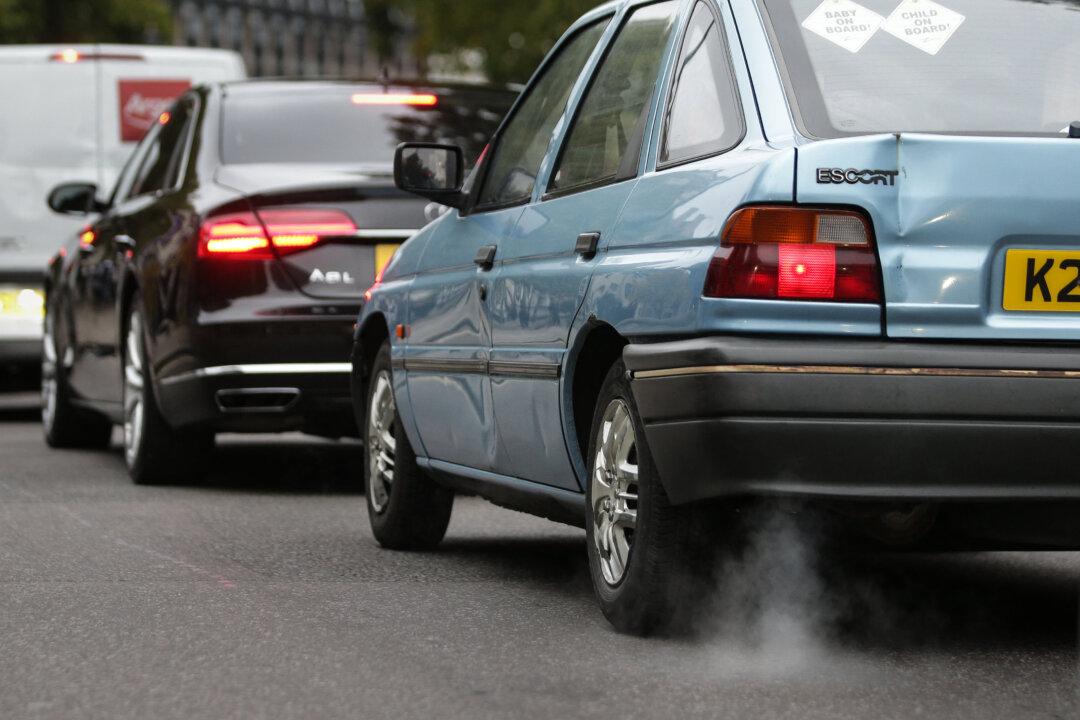Drivers of older petrol and diesel cars are facing increasing net zero penalties with council-led higher parking charges that will “fuel greater antagonism,” campaigners claim.
Many councils have implemented emissions-based parking schemes, allowing them to impose surcharges that are in some cases double the standard rate, for parking what they consider the most polluting vehicles.
The new policies come as the government plans to ban the sale of new petrol and diesel heavy goods vehicles by 2035 under the Climate Change Act.
Cashless Parking
While these schemes have primarily been developed by local authorities in London, several councils outside the capital have also adopted them.The London boroughs of Greenwich, Lewisham, Newham, Croydon, and Lambeth, plus St. Albans in Hertfordshire, already have similar charges.
Councils are enforcing the measures with auto number plate recognition technology and cashless parking and by phasing out pay-and-display machines and paper-ticket parking permits.
The company worked with the City of London to introduce one of the first schemes in 2018.
‘Sustainable’
The Liberal Democrat-run Bath and North East Somerset Council, one of the latest to implement the measures outside of London, said the scheme will “encourage a shift to cleaner, more sustainable travel in the city.”“The aim is to reduce the number of higher-polluting vehicles driving into Bath where air pollution is a concern, especially for people with chronic heart and lung conditions,” it said.
The council also said that the new parking charges for more polluting vehicles are “complementary to the objectives of Bath’s Clean Air Zone, which aims to reduce NO2 levels only.”
‘Highway Robbery’
Campaigners told The Epoch Times that the schemes amount to “war on drivers.”Ian Taylor, director of the Alliance of British Drivers told The Epoch Times by email that he believes “it was yet another proposal to levy charges on drivers.”
“It’s starting to get a bit boring to keep on about the ‘war on drivers’ but example after example points to it and the fact that it’s actually intensifying despite repeated promises by politicians to end it. All over the country local councils, mayors, etc. are shamelessly extorting money from drivers to boost their flagging coffers, but when it comes to schemes that restrict driving, funds always seem to be magically available,” he said.
He said that it “is difficult to avoid the conclusion that the authorities are deliberately trying to price cars off the road while taking the most money off them while they’re there.”
“It brings a whole new meaning to the term highway robbery, now legalised because the modern highwaymen are the councils,” he added.
“Finally it needs noting that a parked vehicle, of any sort, emits nothing, making the idea even more unfair,” he said.
Ben Pile, co-founder of Climate Debate, told The Epoch Times by email that he believes there “is no scientific basis for any of Bath’s air pollution policies, which are, as they are everywhere else, merely anti-car policies that gradually reduce people’s freedoms.”
He said that air pollution policies of this kind “are a proxy of the climate agenda, which local councils have been lobbied to adopt by extremely well funded climate campaigning organisations.”
“Rather than benefiting health, the only things these measures are going to achieve is to reduce the flow of customers to local businesses, restrict people’s mobility, including their ability to find and get to work, and fuel greater antagonism between the council and the local population. Ultimately, the economic harm they will cause will have far greater negative consequences for health than the air pollution they are seemingly intended to prevent,” he added.
The Epoch Times contacted Bath Council for comment.







